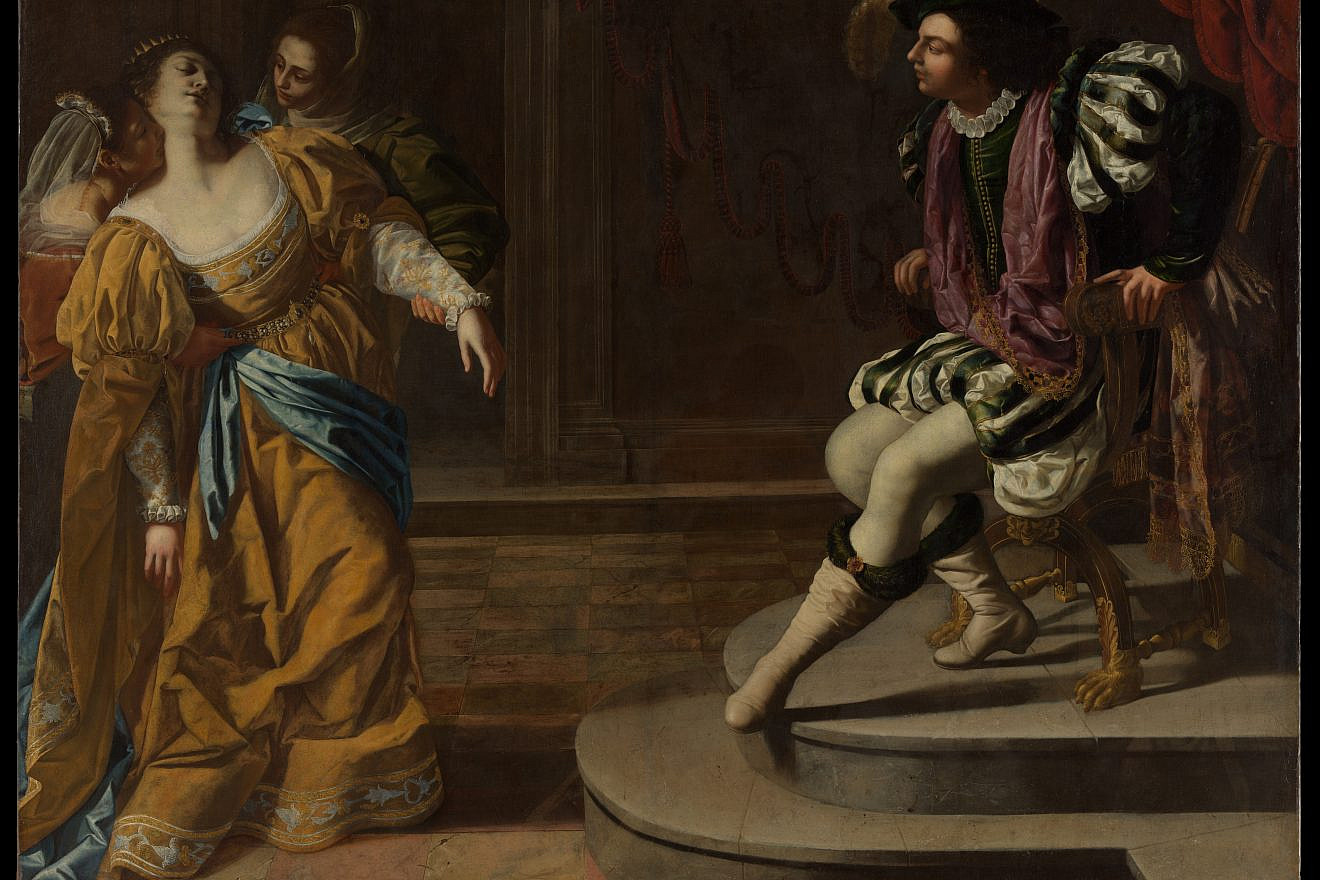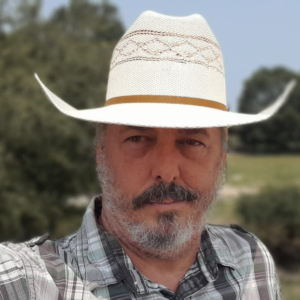Over the last century, the vast majority of American Jewry became progressively, and seemingly inevitably, more secular. With an intermarriage rate of 72%, all signs have pointed to the imminent end of the largest and most important Jewish community outside of Israel – until now.
In late January, conservative New York radio talk show host Sid Rosenberg visited Israel for the first time, broadcasting his popular show from Jerusalem. “I say all the time, if Hamas wanted to try and ruin the spirit of the Jewish people and break us – the exact opposite has happened, you’ve brought the Jew out in me… I’ve always been a proud Jew, but I’ve skipped going to synagogue and over the past few years, even the High Holidays. But two weeks after October 7, my wife joined a temple, I’ve started to go to Friday night Shabbat dinners… and I’ve even sat and learned Torah with a rabbi.”
Meanwhile, Matisyahu – the superstar reggae musician who in recent years distanced himself from Judaism – reacted similarly to the massacre of October 7. On the Ami’s House podcast, he explained that his “pintele Yid,” his “Jewish spark,” was awakened. “Over the years, [being Jewish] became less central to me. And right now it’s come back, full force.”
Israel’s religious revival, particularly among IDF soldiers, is well documented. High demand for tzitzit (fringed garments) and phylacteries and moving scenes of religious and secular soldiers praying together have become tangible signs of a widespread spiritual awakening. “Days are coming, says Hashem, and I will send famine into the land, not a famine for bread nor a thirst for water, but to hear the word of God” (Amos 8:11). Israeli soldiers and much of the nation are thirsty for God’s word. “This tangible living thirst, which fills the practical lives [of the people of Israel] with its light… calls out to the nation to wake up, rise up and shake off the dust of humiliation.”
The impact among diaspora Jews, though less obvious, seems just as real. Talya Paskin, a jewelry designer from the UK, saw a 600% surge in the sales of her Star of David necklace, a trend also seen by other designers who sell jewelry with Jewish themes. According to a survey of diaspora Jews taken in the wake of October 7, 86% of respondents said that community members were experiencing a “deeper connection to their own Jewish identity.”
The sleepy and assimilated American Jewish community is awakening – and beginning to discover their true identity.
Israel’s Inner Lion
Have you ever seen the kids’ movie Madagascar? The movie tells the story of a group of “wild” animals at the Central Park Zoo in New York City. The crowds are in awe of these exotic beasts. Everyone’s favorite is Alex the lion, the “King of New York”; the children cheer every time he roars.
But it’s all a show. In reality, these animals are anything but ferocious. Pampered by trainers who wait on them hand and foot, their habitats, carefully designed to look like “the wild,” are safe and comfortable. The animals are living the good life!
Still, Marty the zebra finds himself dreaming about the wild. He can’t shake the feeling that he wasn’t made to live in a zoo, that he was born to roam free in the grasslands of Africa. On Marty’s tenth birthday, the other animals try to cheer him up, to no avail. His restlessness ultimately leads him to escape the zoo, with his friends – the lion, hippo and giraffe – in tow. They soon find themselves in the jungle of Madagascar.
These zoo animals were born to live free, possessing the jungle instincts of the wild. But being raised in a zoo, away from their natural habitat, left them unprepared for the wild. This is the movie’s primary joke; see what happens when you drop a bunch of domesticated New York City animals into the wilds of Madagascar!
But little by little, the animals discover their natural instincts. Alex the lion realizes that he is the king of the jungle, finding strength he never knew he had. By the end of the movie, the lion, zebra and others have become the wild and powerful animals they were born to be.
Madagascar is more than an entertaining kids movie. It is the story of American Jewry.
For generations, American Jews have lived in a “golden cage.” The United States was far more than a safe haven for Jews – it was the single greatest exile the Jewish people ever experienced. American Jews reached heights of wealth and success unmatched by any other exile Jewish community in history.
This success led to self-delusion. American Jews convinced themselves that the United States was their new Jerusalem – that America was truly their home. Though they generally supported the State of Israel, Israel was not for them, not personally. Israel was for those unfortunate “other Jews” who tragically were not blessed to live in the United States, the goldene medina, the “golden land.”
Like Alex, Marty and the other animals of Madagascar, American Jews forgot that the “exile zoo” – even a beautiful zoo like America – is not a Jew’s natural habitat, where Jews can properly fulfill their Divine mission. They enjoyed the zoo so much they decided to make it their permanent home, abandoning the ancient Jewish dream of returning to the Holy Land. They lost touch with their “inner lion”; they forgot that they were God’s chosen people, tasked with a unique mission to become a light unto the world. They abandoned the Bible, and in doing so, they ignored their Jewish souls. Like Alex the lion, eating sushi in the Central Park Zoo instead of hunting his prey in the plains of Africa, they lost touch with their true selves.
To fulfill their purpose, Jews must be in their natural habitat, attached to the inheritance God set aside for them in the land of Israel. Israel is not merely a “Jewish center,” where Jews can live openly and comfortably among a Jewish majority. The soul of the people of Israel is bound up with the land of Israel; detached from it, they cannot be whole. “Holy children, you will be a blessing to the land, in the precious land you will be blessed, and on holy ground you will spread forth your branches.” When a Jew returns to the land, it’s like connecting a plug to an electrical outlet. The lights go on, and the soul begins to shine.

American Jews were blind to all of this. They believed they were already home – until October 7. Like a ton of bricks smashing the windshield of a car, October 7 shattered their illusions.
“When the holy nation of Israel loses sight of the strength of its soul and the people forget… how blessed they are to be Jews, ‘Because the Lord’s portion is His people Jacob, the lot of His inheritance,’ (Deuteronomy 32:9), the nations of the world will come and smack them in the face and stomp on them with feet of arrogance.”
When thousands of hateful people marched for Hamas in the streets of New York City, American Jews began to realize that they were living among far more antisemites than they ever imagined. When polls showed that over 50% of young people in America think Israel should be wiped off the map and replaced with a Palestinian state, Jews began to question whether there will be a future for Jews in America. After October 7, Jews throughout the United States began to understand, deeply and profoundly, that they are Jews – whether they like it or not. They began to understand that Israel is more than just a Jewish country. It is their destiny.
Little by little, American Jews are discovering the lion that dwells within them. After decades of sticking their heads in the sand and ignoring the growing cancer of antisemitism, they have begun to fight back. “Behold, they are a people that rises like a lioness and raises itself like a lion” (Numbers 23:24). When Bilaam looked down upon the Israelites from the mountains of Moab, he saw a nation of lions – holy and powerful warriors ready to fight for God!
This is the DNA of the people of Israel. A zebra cannot cannot change its stripes. Even a lion that has spent its entire life in captivity remains, at heart, a lion. So too, a Jew in exile remains God’s child, even if he has wandered far from home. The only question is when he will return.
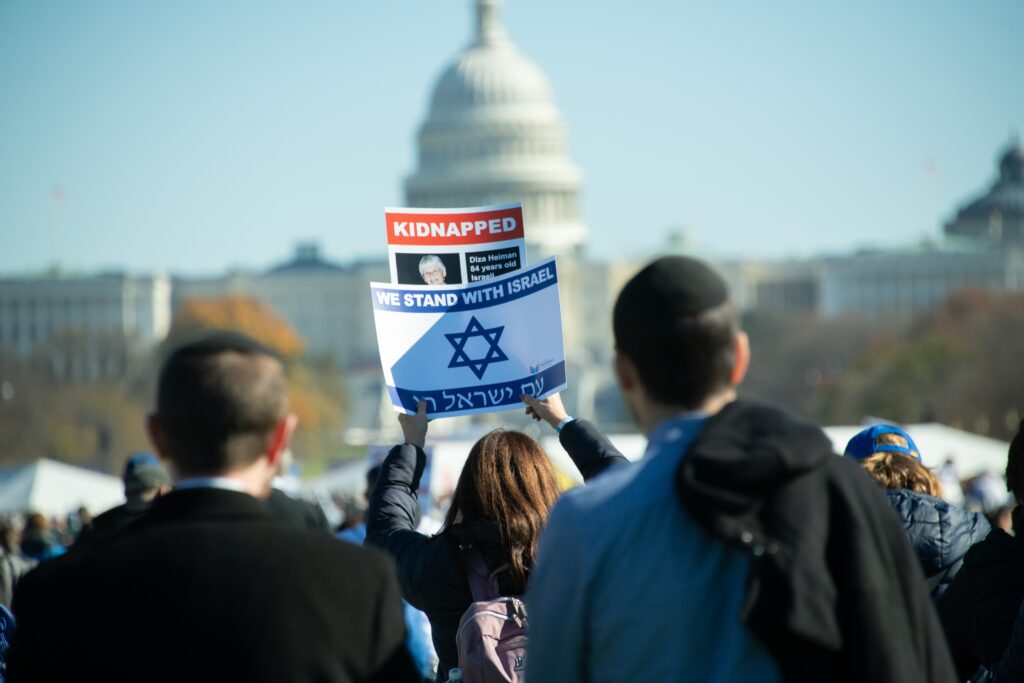
A Glorious Salvation and Lost Opportunity
Though today’s spiritual revival may seem unprecedented, the Jewish people have been here before. During the time of the Book of Esther, the great majority of Jews in the Persian Empire were assimilated. The sages ask, “For what reason were the Jews of that generation deserving of destruction?… Because they participated in the banquet of the evil [Ahaseurus].” Distant from God and their heritage, Jews shamefully participated in a party that celebrated the rejection of biblical values. Most Jews of that era identified as Persians first and Jews second, if they identified as Jews at all.
We tend to view Mordecai and Esther as righteous Jews who, from the very start of the Book of Esther, rejected the assimilation of their brothers and sisters. The sages portray Mordecai as a rabbi, a member of the Great Assembly and one of the nation’s great spiritual leaders, while Esther is described as a deeply religious woman who secretly maintained her Torah observance in Ahaseurus’ palace. But there is another, more historical approach offered by many commentators, which views Mordecai and Esther very differently.
“Mordecai” and “Esther” are Persian names. Mordecai is named for the Babylonian god Mordoch, while Esther is named for a Persian goddess. The contrast to their fathers’ Hebrew names, “Yair” and “Avichayil,” is stark. The implication is that their parents, Jewish exiles from Jerusalem, had established themselves in Persian society and hoped their children would become full-fledged Persians, unencumbered by Jewish names. We see the same phenomenon today among American Jews who give their children non-Jewish names like Brittany, Oliver and Emma, hoping to mask, or at least deemphasize, their children’s Jewish identity.
Mordecai, a successful politician who “sat at the gate of the king” (Esther 2:19), was likely educated in Persian schools and entirely comfortable navigating its halls of power. When Mordecai informed Ahaseurus’ administration of Bigtan and Teresh’s plot to assassinate the king (Esther 2:21), his warnings were taken seriously and acted upon, for he was a respected member of the empire’s political class. But like many successful American Jews in politics today, Mordecai’s Jewish heritage had no impact on his political views or his career.
How did Esther manage to conceal her Jewish heritage from King Ahaseurus? How is it that no one within the Jewish community revealed her identity? A straightforward interpretation suggests that Esther, much like Mordecai, was a fully assimilated Jew who had distanced herself from the Jewish community of Shushan, the Persian capital. By hiding her Jewish identity, she was able to ascend to the highest levels of influence and power.
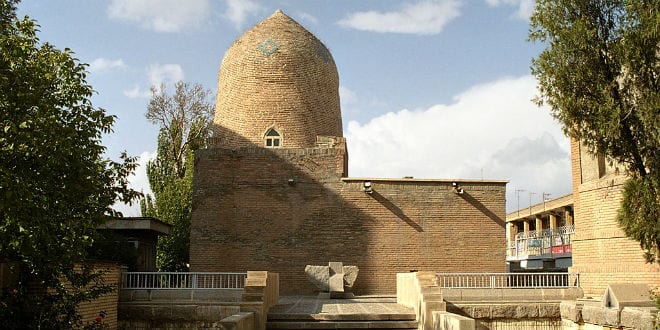
Like the other assimilated Jews of their time, neither Mordecai nor Esther heeded the call of a previous emperor, Cyrus the Great, which allowed the people of Israel to return to their land. In other words, they were very similar to most American Jews of our own time, who show little interest in fulfilling biblical prophecy and returning to God’s land.
But everything changed with Haman’s decree. “The removal of Ahasuerus’s ring [for the sealing of Haman’s decree] was more effective [at encouraging the Jews to repent] than the forty-eight prophets and the seven prophetesses who prophesied on behalf of the Jewish people.” As the horrors of October 7 have done for so many Jews today, the rise of the notorious antisemite Haman to power triggered a spiritual crisis for Mordecai. People he thought were friends and allies remained silent in the face of Haman’s decree, just as so many liberal and progressive “friends” of American Jews have remained silent today after Hamas brazenly raped, tortured and massacred over 1,200 Jews.
For the first time, Mordecai understood that he was part of the nation of Israel, discovering a Jewish pride he never knew he had. He refused to bow to Haman, risking his life and reclaiming his Jewish identity. He rediscovered his roots as a son of the tribe of Benjamin, the only son of Jacob who had never bowed to Esau, the forefather of Amalek and Haman.
When Haman’s decree calling for the genocide of the Jewish people became known, Mordecai dressed in sackcloth and ashes and “cried with a loud and bitter cry” (Esther 4:1). No longer would Jews remain silent as antisemites ran rampant through the streets! The time had come to act. The only question was whether Esther, the assimilated Jewish queen, would join Mordecai and rise up to defend her people.
Hearing about Mordecai’s public mourning and identification as a Jew, Esther was terrified. After all she and Mordecai had accomplished, after all their efforts to hide their Jewish identities, why was Mordecai risking everything and associating with openly Orthodox Jews?
But this was not the same Mordecai that Esther had known before. While Esther enjoyed her life in the king’s palace, Mordecai made the fateful decision to return to his roots and align himself with the nation of Israel. He informed Esther of the decree and commanded her to approach the king on behalf of her people. Understandably, Esther hesitated. Approaching the king was dangerous – and why should she do so on behalf of a nation she hardly knew and didn’t understand?
At this fateful moment, Mordecai challenged Esther with a manifesto of Jewish peoplehood: “Do not imagine to yourself that you will escape in the king’s house from among all the Jews. For if you remain silent at this time, relief and rescue will arise for the Jews from elsewhere, and you and your father’s household will perish; and who knows whether at a time like this you will attain the kingdom?” (Esther 4:13-14).
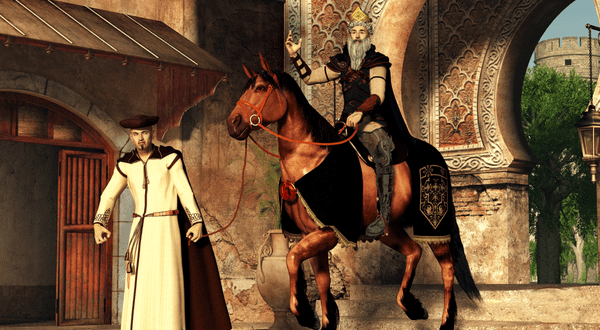
It was clear to Mordecai that Esther must choose, just as every American Jew must ultimately choose. Would she play a role in Israel’s destiny and stand up for her people, or would she commit spiritual suicide and permanently erase her Jewish identity? Esther made the noble choice. She reclaimed her Jewish identity and risked her life to defend the brothers and sisters she hardly knew. She became the hero of the Purim story, manipulating both Haman and Ahasuerus and gaining salvation for her people and, ultimately, herself.
As Mordecai and Esther went, so did the Jews of their time. The terror of Haman and the heroism of Esther sparked a religious revival unlike anything the nation had experienced before. “They confirmed what they had accepted earlier,” rededicating themselves to observing the Bible in the wake of the miracle of Purim.
Nevertheless, despite the religious revival, only a small percentage of Jews in the Persian Empire returned to Israel to rebuild the Temple and reestablish Jewish independence and nationhood. As recorded in Ezra and Nehemia, only 42,500 Jews returned to Israel, while the vast majority, including the wealthiest and most influential Jews, remained in the diaspora. Tragically, an incredible opportunity – to return to the land and usher in the final redemption – was lost.
A Lion in the Forest
“And a redeemer shall come to Zion and to those who repent of transgression in Jacob, says the Lord” (Isaiah 59:20). When the era of redemption arrives in Zion, in the land of Israel, it will also come to redeem those Jews “who repent of transgression in Jacob,” to those living in the diaspora who awaken and return to God because of their suffering at the hands of antisemites.
As American Jews grapple with rising antisemitism and reclaim their Jewish identity, how many of them will hear God’s call to return to the holy land, to join their brethren in Israel? How many will rise up and reclaim the inheritance of their forefathers? “The Lord God, who gathers the dispersed of Israel, declares, ‘Yet others I will gather to them, to those already gathered’” (Isaiah 56:8).
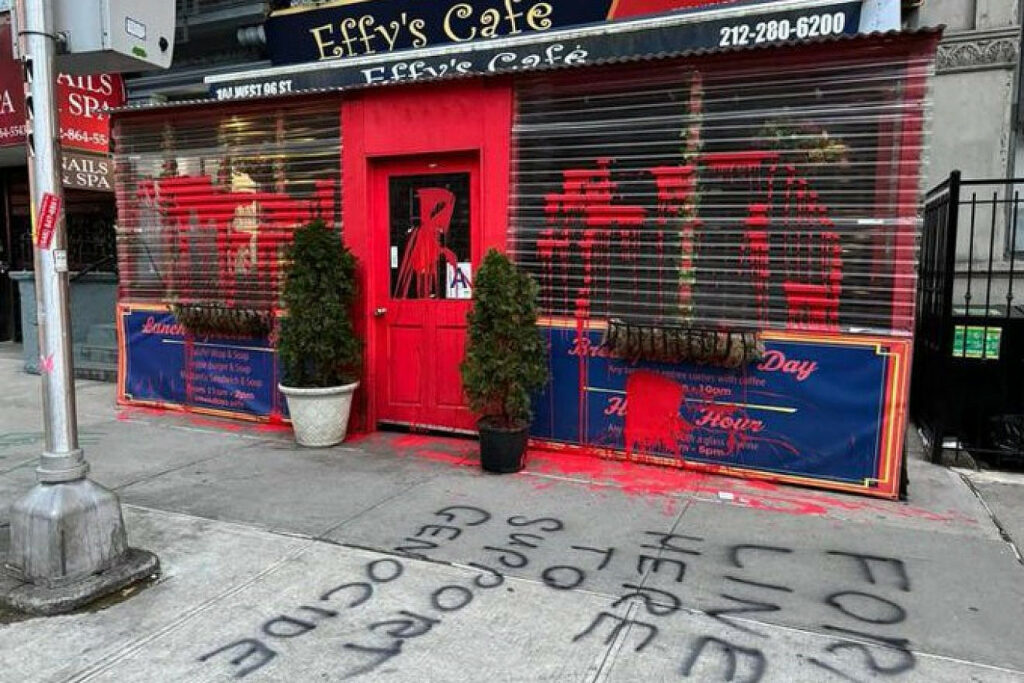
This is a moment of prophetic opportunity. “May Your dead live, ‘My corpses shall rise; awaken and sing, you who dwell in the dust… (Isaiah 26:19). A new spirit of hope and faith have revived a community that was a lifeless corpse. American Jews are awakening, and now have the chance to complete the salvation begun by Mordecai and Esther. Perhaps the Jews who still remain in the diaspora, the exiled “sheep” of Israel, are finally ready to become the “lions” they are meant to be. “And the remnant of Jacob shall be among the nations, in the midst of many peoples, as a lion among the beasts of the forest, like a young lion among the flocks of sheep. Your hand shall be raised above your oppressors, and all your enemies shall be destroyed.” (Micah 5:7-8).
This time, we pray the script will change. 2,500 years after Mordecai and Esther, the people of Israel have awakened – and the land of Israel is beckoning.
Return to who you are
Return to what you are,
Return to where you were
Born and reborn again.
Return again, return again
Return to the land of your soul.




